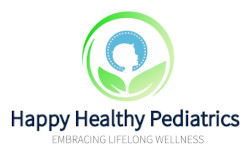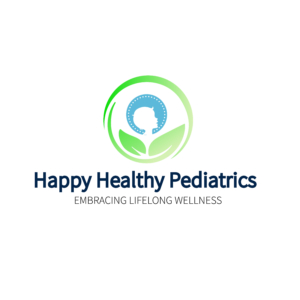Supporting Children with Focus and Inattentive Difficulties
In today’s fast-paced world, many children face challenges with focus and attention. Whether it’s at
school, during homework, or even in everyday conversations, difficulties with staying focused can
have a significant impact on a child’s development and well-being.
I believe in addressing attention issues with a holistic approach—combining the best of conventional
medical treatments with natural, evidence-based strategies that nurture the body and mind.
If your child struggles with inattention, hyperactivity, or difficulty concentrating, there are many ways
you can support them beyond traditional treatments like medication.
Here are strategies that can help improve focus and attention, addressing both the physical and
mental aspects of this challenge.
1. Nutrition: Fueling the Brain for Focus
The foundation of a child’s ability to focus starts with nutrition. What your child eats plays a significant
role in their brain health and cognitive function. Certain nutrients support neurotransmitters (the
brain’s communication system), while others help regulate mood and energy levels.
- Protein for Sustained Energy: Protein is essential for producing neurotransmitters like dopamine and serotonin, which help regulate attention and Include lean proteins like chicken, fish, eggs, and legumes in their meals.
- Complex Carbohydrates: Simple sugars can cause spikes and crashes in blood sugar, which can lead to irritability and difficulty Opt for complex carbohydrates like whole grains, sweet potatoes, and vegetables that provide steady energy.
- Omega-3 Fatty Acids: Omega-3s, found in fatty fish (like salmon), chia seeds, and walnuts, are essential for brain health and cognitive function. Studies suggest that children with ADHD may have lower levels of omega-3s, so incorporating these into your child’s diet can support better focus and
- B Vitamins: B vitamins, especially B6, B12, and folate, play a crucial role in brain Foods like leafy greens, beans, eggs, and fortified grains can help provide these essential nutrients.
2. Gut Health: The Brain-Gut Connection
The health of the digestive system is closely tied to brain function through what’s called the “gut-brain axis.” A balanced gut microbiome can support emotional regulation and cognitive performance, while an imbalance may contribute to focus
- Probiotics: Probiotic-rich foods like yogurt, kefir, sauerkraut, and kimchi can help restore a healthy gut You can also consider probiotic supplements if recommended by your child’s doctor.
- Avoiding Food Sensitivities: Sometimes, food sensitivities or allergies (like gluten or dairy) can exacerbate attention and behavior issues. If you suspect certain foods may be affecting your child, consider an elimination diet under the guidance of a healthcare professional.
3. Sleep: Restoring Focus Through Quality Sleep
Sleep is essential for focus, memory, and cognitive processing. Without enough sleep, a child’s ability to concentrate and regulate emotions diminishes significantly.
- Consistent Bedtime Routine: Establish a calming, consistent bedtime routine to help your child wind down. Limit screen time at least an hour before bed, as the blue light emitted by devices can interfere with the production of melatonin, the hormone that regulates sleep.
- Age-appropriate Sleep Needs: Younger children need about 9-11 hours of sleep, while teens may need 8-10 Ensure your child is getting enough sleep for their age and be mindful of how their mood and behavior change with sleep deprivation.
4. Exercise: Boosting Brain Function with Movement
Physical activity is another powerful tool for improving focus and attention. Regular exercise boosts circulation to the brain, increases the production of brain-derived neurotrophic factor (BDNF)—which supports brain plasticity—and helps regulate mood and behavior.
- Outdoor Play: Encourage your child to engage in outdoor activities, such as biking, hiking, or simply playing in the yard. These activities provide both physical exercise and exposure to natural light, which supports overall mental health.
- Mindful Movement: Activities like yoga or tai chi not only improve physical coordination but also promote mental clarity and emotional balance. These can be particularly helpful for children who struggle with hyperactivity or impulsivity.
5. Mindfulness and Stress Reduction: Calm Minds for Focused Work
Many children with focus and attention difficulties also struggle with stress or emotional dysregulation. Mindfulness practices, such as deep breathing and meditation, can help calm the nervous system and improve attention span by teaching the child how to focus on the present moment.
- Breathing Exercises: Simple breathing exercises, like “4-7-8” breathing, can be very Teach your child to inhale for 4 counts, hold for 7, and exhale for 8. Even a few minutes of practice each day can help improve focus.
- Mindfulness Activities: Encourage your child to practice mindfulness techniques, such as paying attention to their senses or practicing gentle Over time, these activities can help increase their ability to stay present and focused.
6. Herbal Support: Natural Allies for Attention
Certain herbs have been used for centuries to help support focus, attention, and emotional regulation. While these should be used with guidance from a healthcare provider, here are a few that show promise:
- Ginkgo Biloba: Known for improving circulation and oxygen flow to the brain, ginkgo may help enhance memory and cognitive function.
- Bacopa Monnieri: This herb has been traditionally used to improve cognitive function, focus, and memory. Some studies suggest it may be helpful for children with attention difficulties.
- Lemon Balm: A gentle calming herb, lemon balm may help reduce anxiety, promote relaxation, and improve focus in children with restlessness or distractibility.
7. Behavioral Strategies and Structured Routines
Children with focus difficulties often benefit from clear structures and predictable Creating a supportive environment where expectations are consistent and manageable can help improve attention and decrease feelings of overwhelm.
- Use Visual Schedules: Create a daily or weekly schedule with visual cues so your child can see what to expect This helps build a sense of security and reduces stress, making it easier for them to focus.
- Break Tasks into Smaller Steps: If your child struggles to stay on task, break down activities into manageable chunks. Celebrate small accomplishments to build momentum and confidence.
- Positive Reinforcement: Praise your child for their efforts, not just the Positive reinforcement can help them feel motivated to stay focused.
8. Consider Alternative Therapies: Acupuncture and Neurofeedback
Some children benefit from alternative therapies like acupuncture or neurofeedback, which can help improve focus and attention by balancing energy or training brain wave patterns.
- Acupuncture: An increasing number of parents are turning to acupuncture as an adjunct to traditional treatment for focus and behavior issues. It may help balance the body’s energy and promote mental clarity.
- Neurofeedback: This therapy involves training the brain to self-regulate, which can be particularly helpful for children with attention It’s best used in conjunction with other therapies.
9. Consult with a Healthcare Provider
While integrative approaches are beneficial, it’s important to consult with your child’s pediatrician or a healthcare provider who specializes in integrative medicine to develop a comprehensive treatment plan tailored to your child’s specific needs. Focus and attention difficulties can sometimes be linked to underlying conditions such as ADHD, so a thorough evaluation may be necessary to identify the root cause.
Final Thoughts
Supporting a child with focus and inattentive difficulties requires a multi-faceted approach that nurtures both the body and the mind. Through a combination of proper nutrition, regular exercise, quality sleep, stress reduction, and mindful practices, we can help children strengthen their ability to focus and thrive in all areas of life. By addressing these needs holistically, we not only support our children’s academic and behavioral success but also promote their long-term emotional and physical well-being.
If you’re concerned about your child’s attention difficulties, don’t hesitate to seek guidance from an integrative pediatrician who can help craft a personalized approach to support your child’s development. With the right tools and support, every child has the potential to succeed and flourish.

